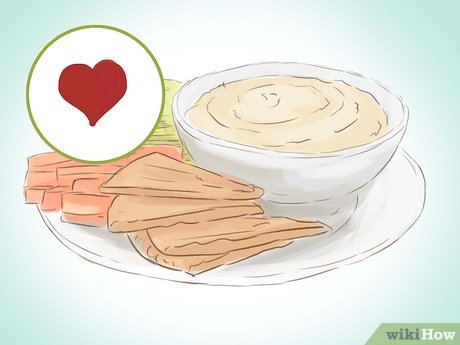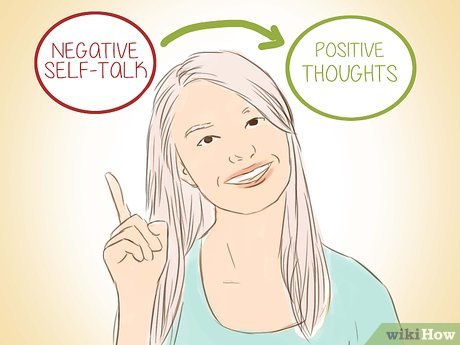How to Find Fun in Everything
Method 1 of 3:
Making Joy a Priority
-
 Play.[1] Adults often assume their lives should be serious, filled with work and family commitments. However, playtime is just as important when you're older as it is when you're a kid. Adults play to learn and expand their horizons, to feel challenged, to have fun, and to get lost in a pleasurable activity. You can't expect fun to find you. You must actively incorporate fun activities that you enjoy into your daily and/or weekly schedule.
Play.[1] Adults often assume their lives should be serious, filled with work and family commitments. However, playtime is just as important when you're older as it is when you're a kid. Adults play to learn and expand their horizons, to feel challenged, to have fun, and to get lost in a pleasurable activity. You can't expect fun to find you. You must actively incorporate fun activities that you enjoy into your daily and/or weekly schedule.- Examples for incorporating more play into your life might be picking up a new artistic hobby, spending more time with kids, or starting a regular game or movie night for you and some friends.
-
 Look on the bright side. You can learn to have fun in most any activity by looking for the silver linings. Even grueling tasks offer you something worthwhile; you just have to look for the positives and embrace them.[2]
Look on the bright side. You can learn to have fun in most any activity by looking for the silver linings. Even grueling tasks offer you something worthwhile; you just have to look for the positives and embrace them.[2]- Practice finding silver linings each day with the following activity. Set aside 10 minutes daily for 3 weeks. Start by listing 5 things you enjoy about your life (e.g. "watching the sun rise each morning" or "hearing your significant other laugh"). Now, think about a time when things didn't go so well. Describe the situation. Then, look for three ways you can look on the bright side of the ordeal.
- For example, your car breaks down on your way to work. You're frustrated and impatient waiting for the mechanic. But, the wait time gives you the opportunity to read over the poetry your best friend asked you to read over. You also have a few minutes to call and check in on your mother. Finally, the waiting allows you to collect your thoughts before heading into a new work day. Noticing the silver linings helps you to see that there are often positives during negative situations.
-
 Celebrate, everything. You may not be having fun in life because you don't take advantage of the little wonders and successes. Have you reached an accomplishment lately? Celebrate it. Has your friend just gotten a new job or dropped those unwanted pounds? Celebrate it. Search for ways to rejoice in the little victories of life.[3]
Celebrate, everything. You may not be having fun in life because you don't take advantage of the little wonders and successes. Have you reached an accomplishment lately? Celebrate it. Has your friend just gotten a new job or dropped those unwanted pounds? Celebrate it. Search for ways to rejoice in the little victories of life.[3]- Get a calendar that lists weird holidays and make an effort to participate in the celebration of as many as you can.[4]
-
 Renovate your environment. At work, at school, or at home, bring more fun into your surroundings. Redecorate your office or bedroom in exciting, bright colors that make you smile. Get some plants to care for. Change your environment with different lighting, fabrics, colors, and other decor, such as books, that brighten your mood.[5]
Renovate your environment. At work, at school, or at home, bring more fun into your surroundings. Redecorate your office or bedroom in exciting, bright colors that make you smile. Get some plants to care for. Change your environment with different lighting, fabrics, colors, and other decor, such as books, that brighten your mood.[5]- The colors you choose for your environment can positively impact your mood and outlook on life. One study showed that individuals in a green room were much less likely to feel stressed as those in a red one.[6]
- In general, people feel happier around yellows and greens.[7] If these colors seem too much for your walls, select artwork, decorative elements, or even flowers that bring in these springtime hues. You can also bring in fun toys, such as slinkies or stress balls to lift your mood in your home environment.
Method 2 of 3:
Enjoying the Little Things
-
 Relish in good sounds. No matter what activity you're doing, sound can have a drastic impact on how much you're enjoying it. For instance, maybe you have to clean your bedroom or the kitchen. The chore is a drag, but turn on some of your favorite tunes and it becomes a cleaning concert of fun.
Relish in good sounds. No matter what activity you're doing, sound can have a drastic impact on how much you're enjoying it. For instance, maybe you have to clean your bedroom or the kitchen. The chore is a drag, but turn on some of your favorite tunes and it becomes a cleaning concert of fun.- Identify sounds that make you happy or relaxed. Music. Children laughing. Rolling ocean waves. Birds chirping in the trees. Aim to surround yourself with these sounds more. If you can't get to them naturally, listen to them from YouTube.
- Identify sounds that make you upset, sad, or angry. Honking traffic. A phone ringing off the hook. Aim to avoid these sounds, if possible. If you can't, counteract them with sounds you like, such as listening to soothing music through earbuds to cover up the nonstop phone calls. Or, maybe you never get quiet time, and a good dose of silence can help you enjoy your tasks more.[8]
-
 Notice delightful physical touch. Humans crave the warmth and touch of others as it is our primary expression of compassion. In this increasingly digital age, touch has become even more important for you to thrive. Touch boosts safety and security, enhances overall well-being, builds trust, increases team bonding, and reduces risk of disease.
Notice delightful physical touch. Humans crave the warmth and touch of others as it is our primary expression of compassion. In this increasingly digital age, touch has become even more important for you to thrive. Touch boosts safety and security, enhances overall well-being, builds trust, increases team bonding, and reduces risk of disease.- Engage in activities and surround yourself with people whose touch brings you joy. Doing so can bring contentment to more areas of your life.
-
 Savor the foods you love. Even eating can be fun when you are doing it mindfully. Many people associate food with guilty feelings. Maybe you should be saying "no" to that slice of chocolate cake at the office party or extra buttery popcorn at the movies. However, when you practice mindful eating, rather than eating mindlessly, you can enjoy more foods you love without the guilt.
Savor the foods you love. Even eating can be fun when you are doing it mindfully. Many people associate food with guilty feelings. Maybe you should be saying "no" to that slice of chocolate cake at the office party or extra buttery popcorn at the movies. However, when you practice mindful eating, rather than eating mindlessly, you can enjoy more foods you love without the guilt.- To practice mindful eating, select a food such as a bite-size chocolate or small bite of fruit. Observe the food - shape, smell, size, texture. What is your reaction to looking at the food (i.e. salivation, impatience, etc.)? Place the food in your mouth for 30 seconds without chewing. Once 30 seconds have elapsed begin chewing. Afterwards, compare your understanding of the taste and texture of the food before and after eating. Then, compare this experience with your usual experience of eating.[9]
- Begin practicing mindful eating at nearly every meal. Remove distractions such as TV or books and focus wholly on the foods you are eating.
-
 Smile. If you have been stressed out lately, you may need to plaster on a smile to counteract the negative side-effects of stress. Research from the Greater Good Project at Berkeley shows that smiling (even fake smiling) has positive benefits on physical health. It helps the heart recover sooner from stressful experiences.[10]
Smile. If you have been stressed out lately, you may need to plaster on a smile to counteract the negative side-effects of stress. Research from the Greater Good Project at Berkeley shows that smiling (even fake smiling) has positive benefits on physical health. It helps the heart recover sooner from stressful experiences.[10]- To boost your mood and physical well-being, smile when you're doing tasks you don't like much. You'll feel better for it.
Method 3 of 3:
Modifying Your Perspective
-
 Spend the day as a tourist. When we live in a place for months or years, we stop seeing it as extraordinary or exciting. Reinvigorate your passion for your local area by playing tourist for the day.[11]
Spend the day as a tourist. When we live in a place for months or years, we stop seeing it as extraordinary or exciting. Reinvigorate your passion for your local area by playing tourist for the day.[11]- Visit museums, parks, and art galleries in your area. Take pictures and try to experience these locations as a tourist would. Try a restaurant you've never gone to, or order a new choice from the menu at your favorite place. Experience your life from an outsider's perspective - you just might rediscover what you love about it.
-
 Practice meditation. When you think of meditation, you might envision work rather than play. Although it requires quiet and concentration, meditation can be a fun activity for you. In fact, it allows you to connect with your inner self and your outer environment, meaning you can become more conscious of all the outlets for fun around you.[12]
Practice meditation. When you think of meditation, you might envision work rather than play. Although it requires quiet and concentration, meditation can be a fun activity for you. In fact, it allows you to connect with your inner self and your outer environment, meaning you can become more conscious of all the outlets for fun around you.[12]- To make meditation fun, seek out a partner who can do the activity with you. Change up your environment, which can prove challenging and exciting. You can also find guided meditations with interesting sounds and prompts.
-
 Hush your negative self-talk. If the voice inside your head is constantly complaining or criticizing, it can be hard to enjoy life. Overcome negative self-talk to invite more positive vibes into your days. To stop negative self-talk, follow this four-step process.[13]
Hush your negative self-talk. If the voice inside your head is constantly complaining or criticizing, it can be hard to enjoy life. Overcome negative self-talk to invite more positive vibes into your days. To stop negative self-talk, follow this four-step process.[13]- Pay more attention to your thoughts.
- Decide if your thoughts are helpful or unhelpful (i.e. do they improve or worsen your situation)?
- Stop negative thinking in its tracks. Choose not to engage or entertain negative thoughts.
- Transform negative self-talk into positive thoughts. For example, "I will never have time to spend with my friends because of all these assignments" can be positively reframed to "If I work really hard on these assignments and avoid putting them off, I can take a break halfway through and hang out with my friends".
-
 Cultivate a grateful heart. Being thankful can help you see more activities as enjoyable rather than unsatisfying. There are many ways you can demonstrate gratitude, such as expressing thanks and starting a gratitude journal.[14] However, one of the most effective methods for changing your perspective is to change your language.
Cultivate a grateful heart. Being thankful can help you see more activities as enjoyable rather than unsatisfying. There are many ways you can demonstrate gratitude, such as expressing thanks and starting a gratitude journal.[14] However, one of the most effective methods for changing your perspective is to change your language.- For example, we often complain or nag about all the things we have to do. One suggestions is to change your language to describe all the things you get to do. Changing "have to" to "get to" can have a tremendously positive spin on the way you look at and enjoy your life.[15]
Share by
David Pac
Update 24 March 2020











